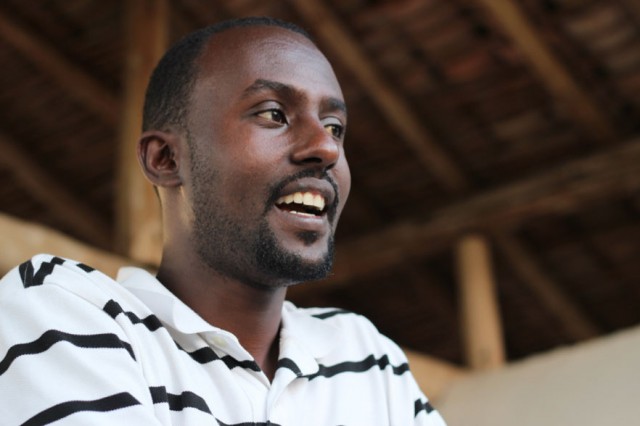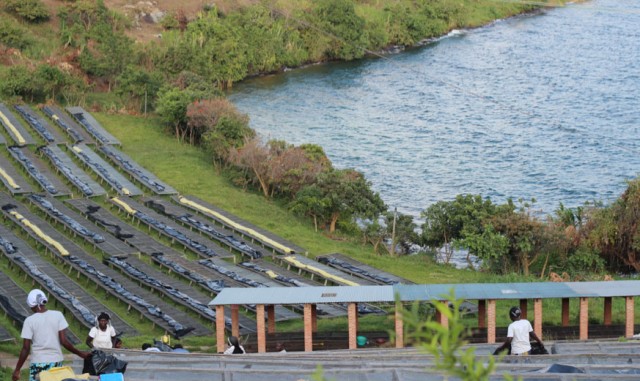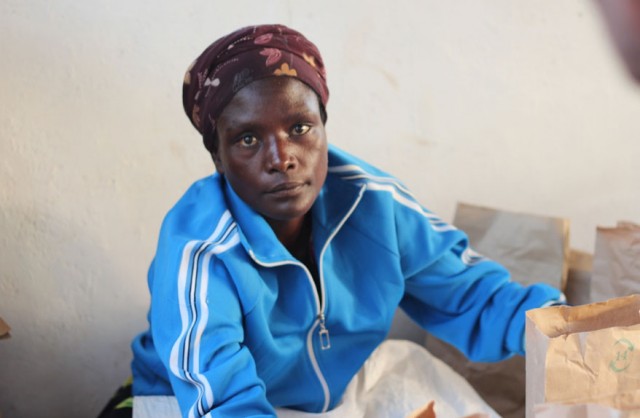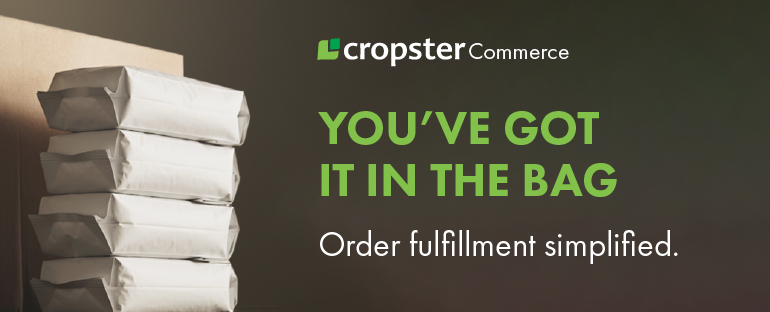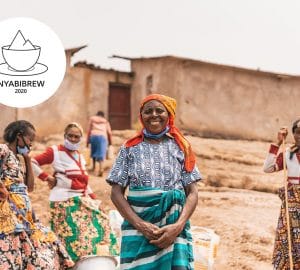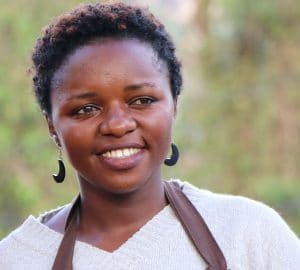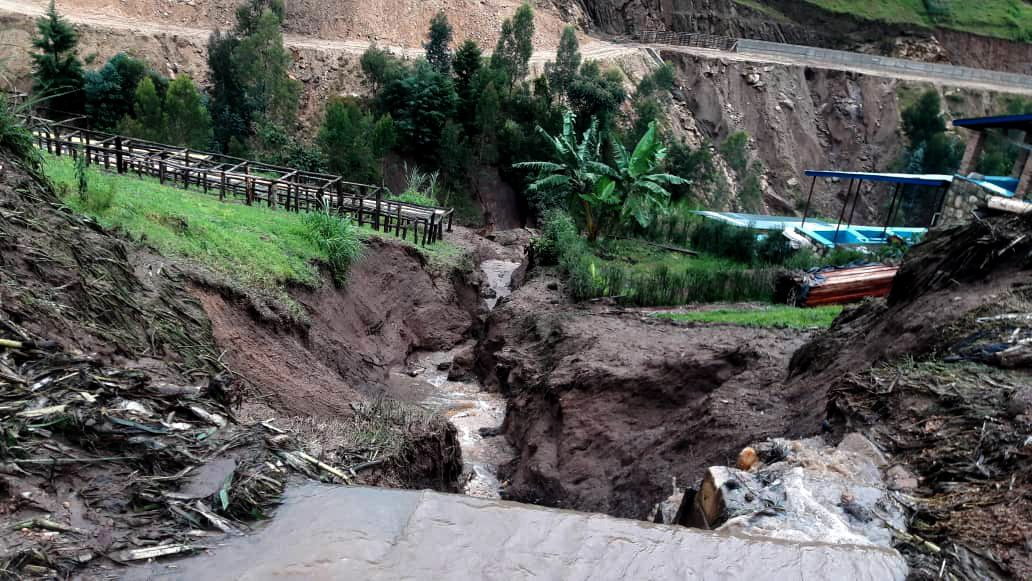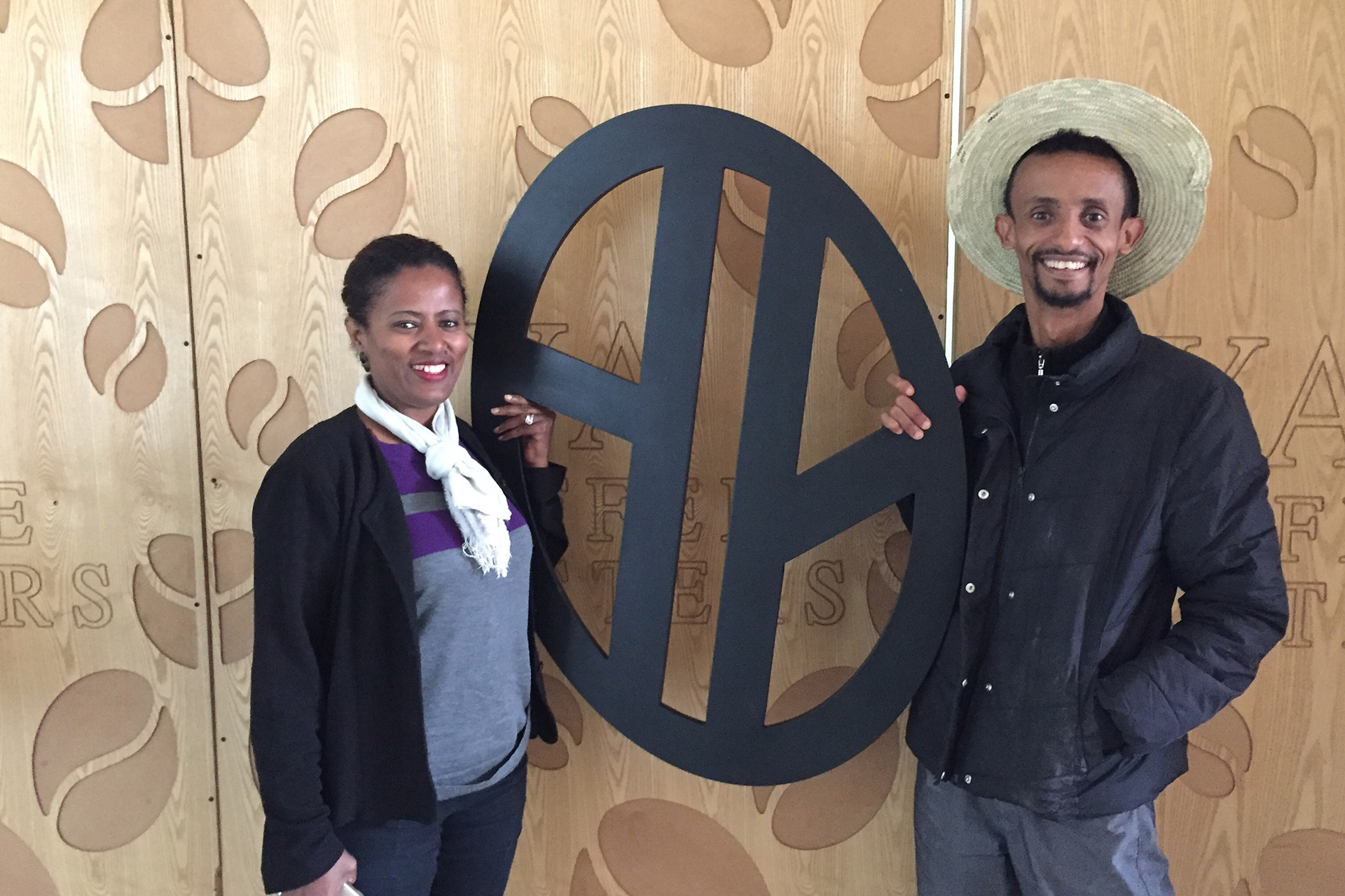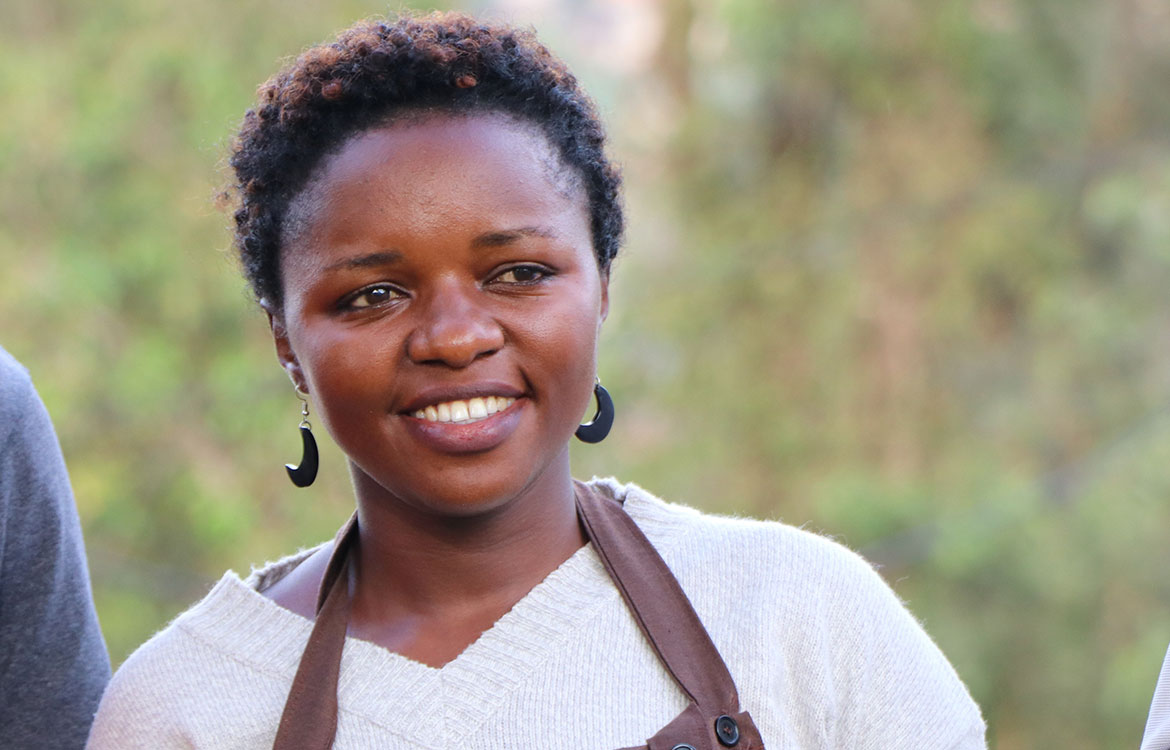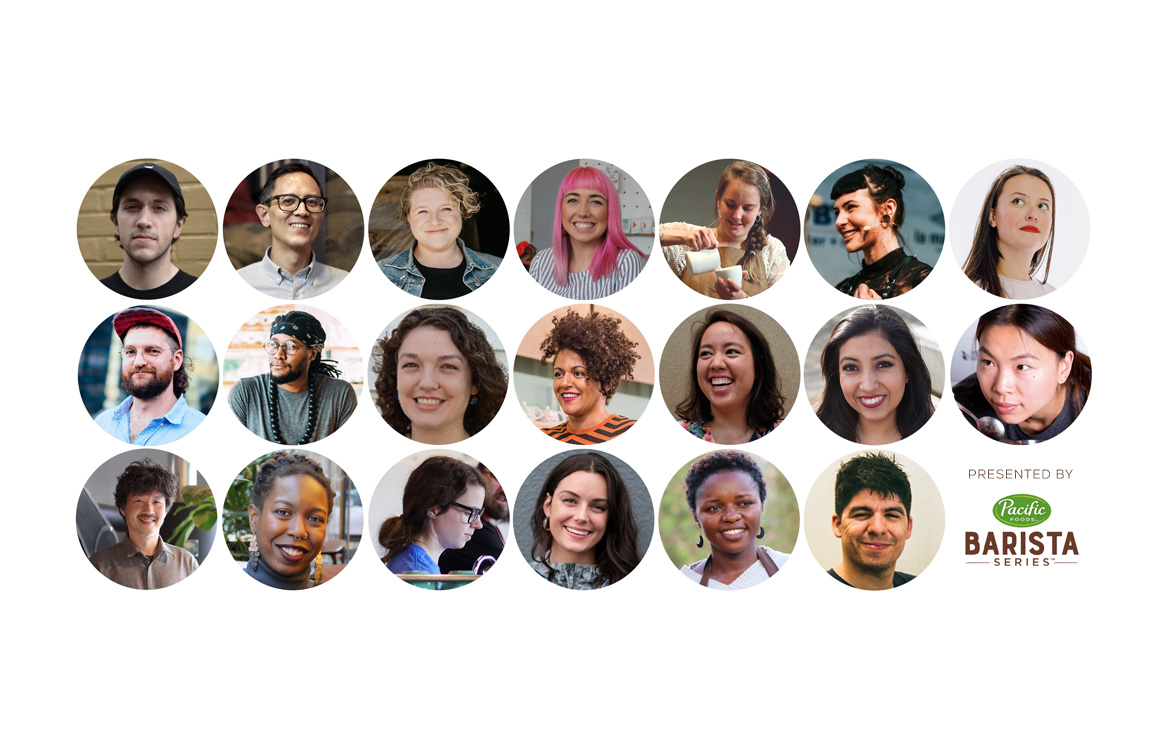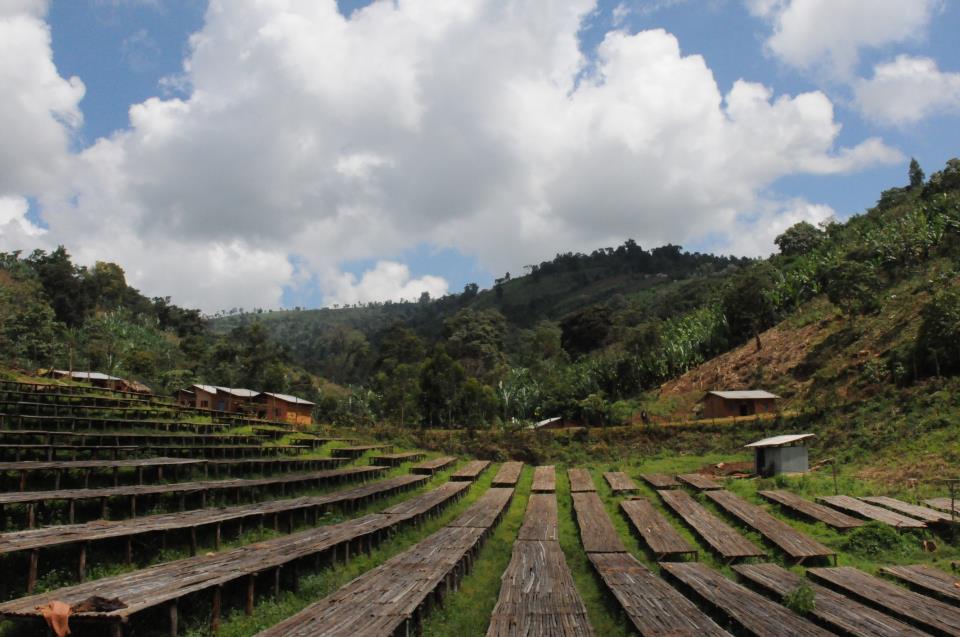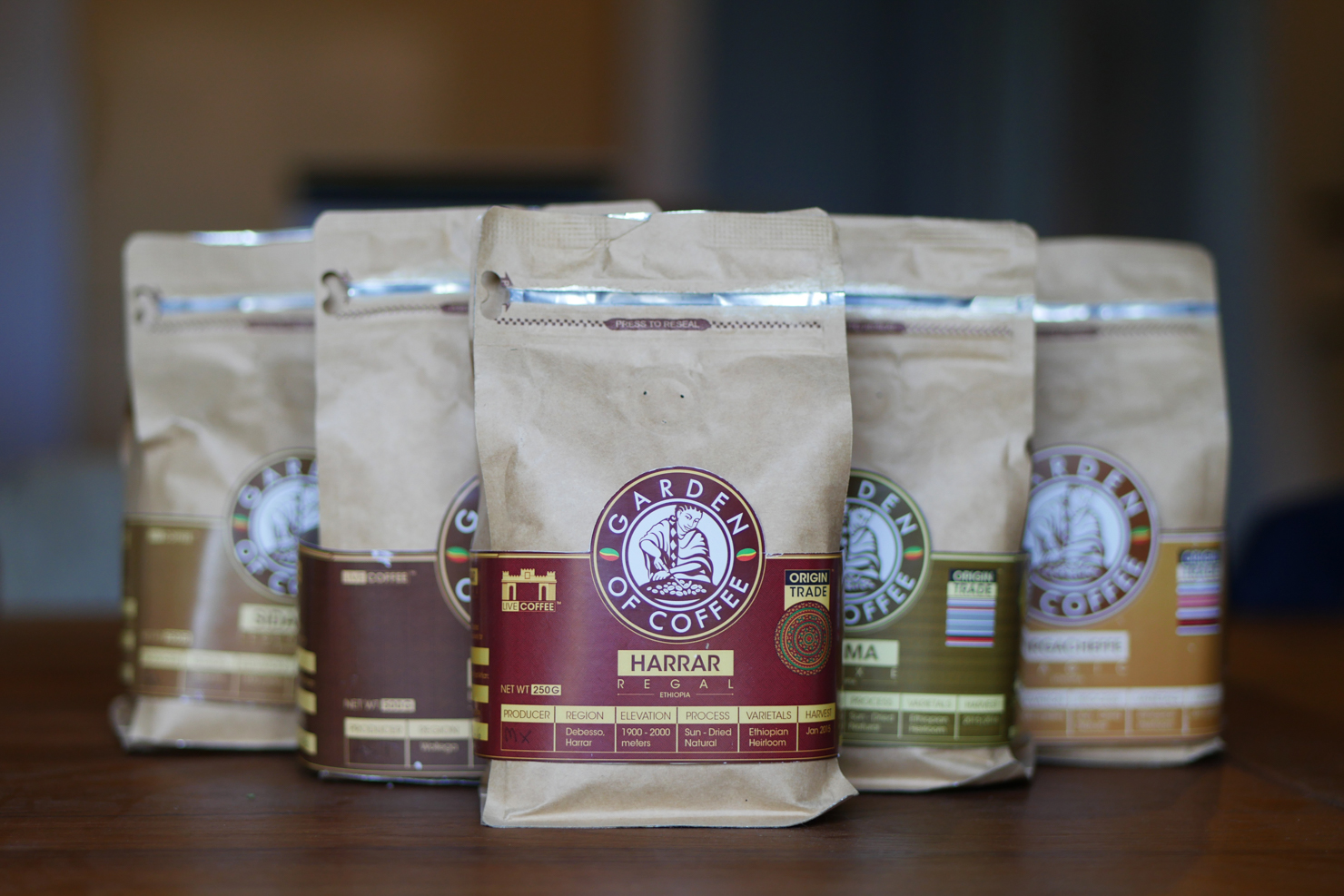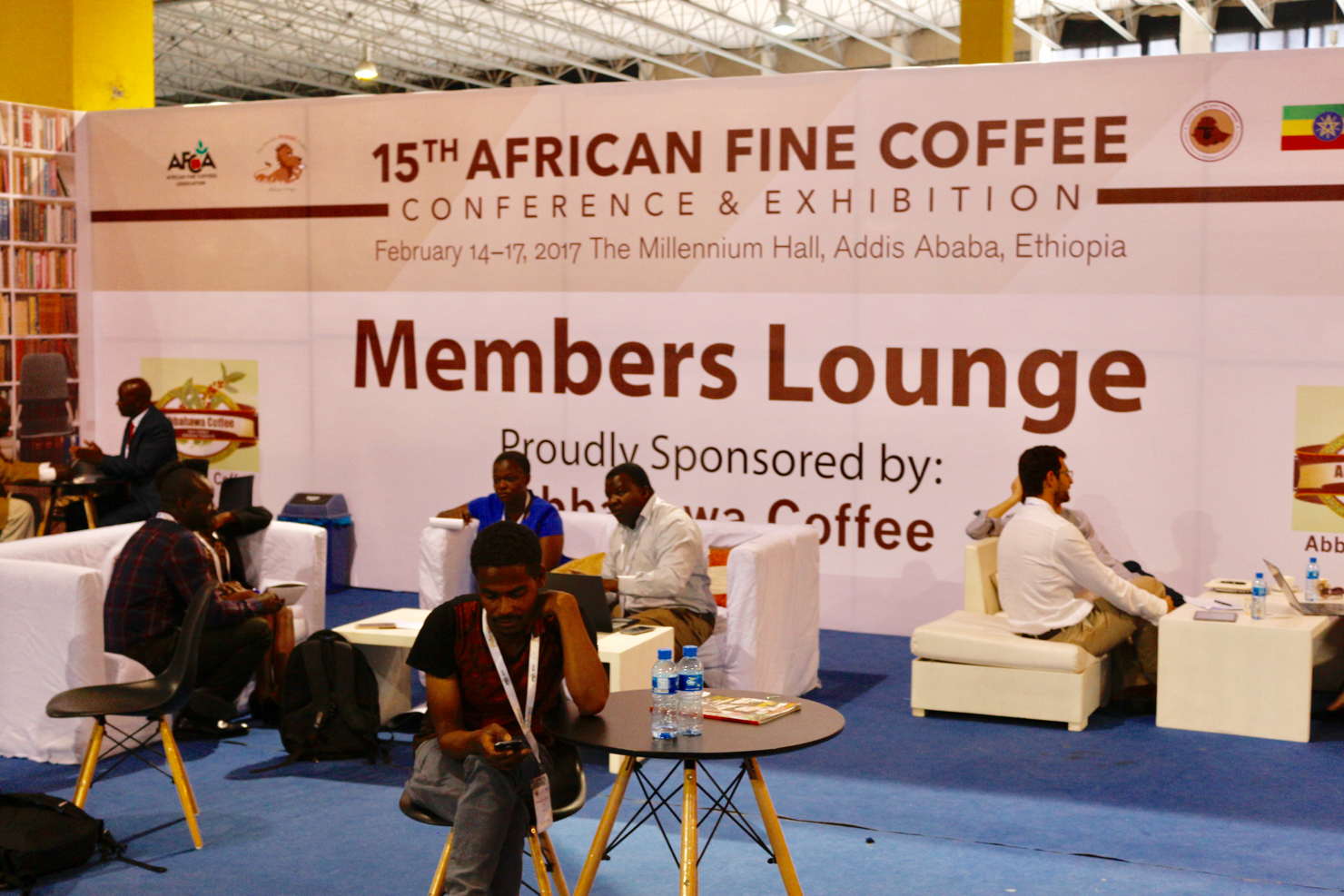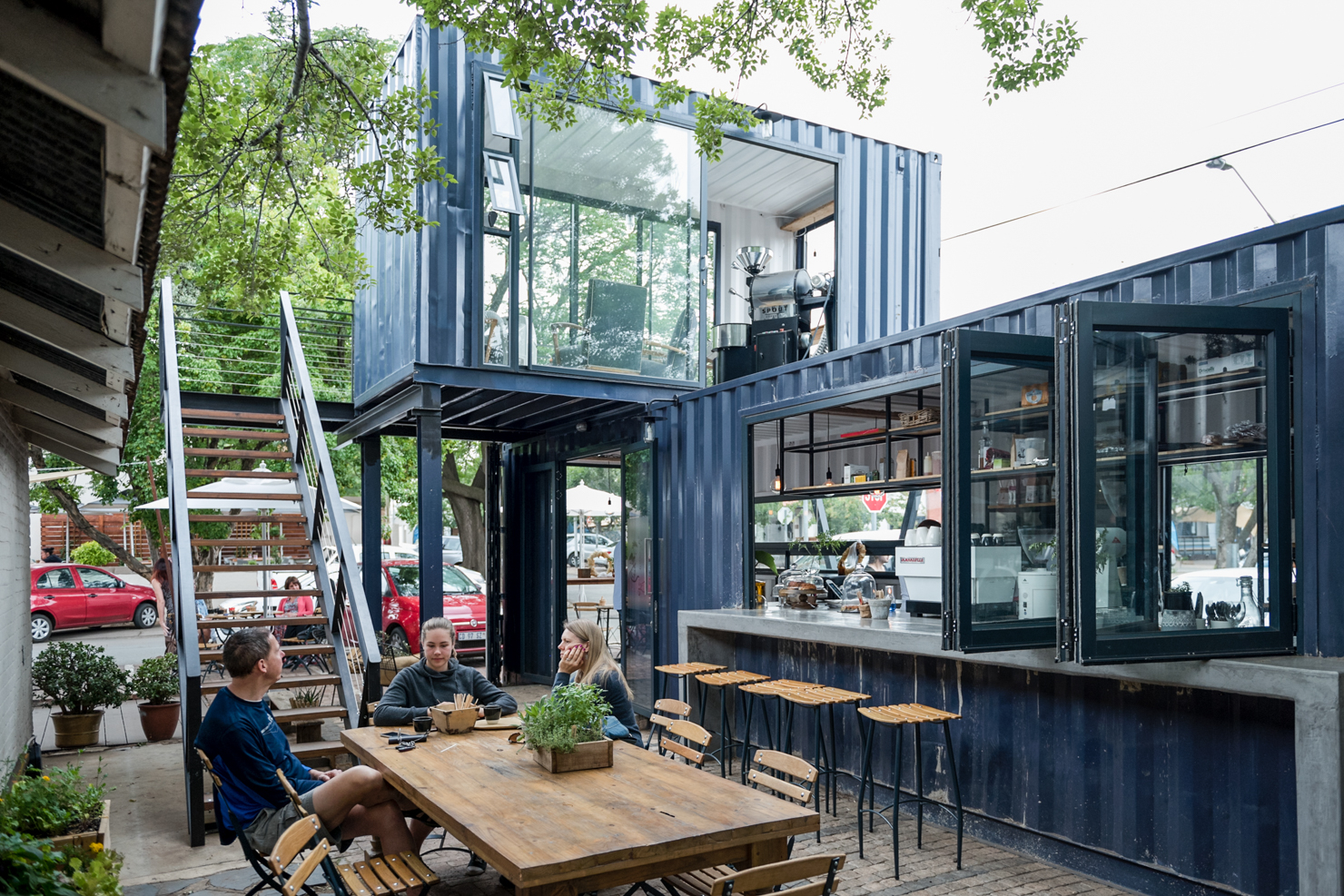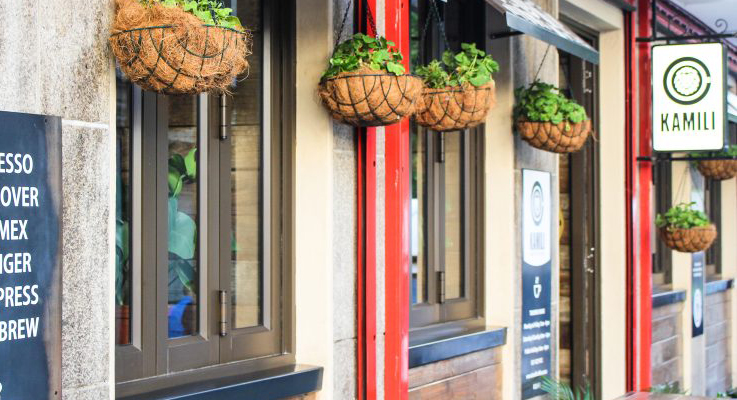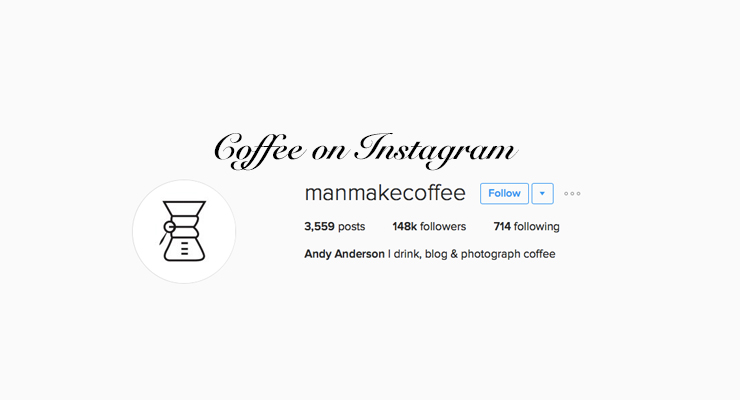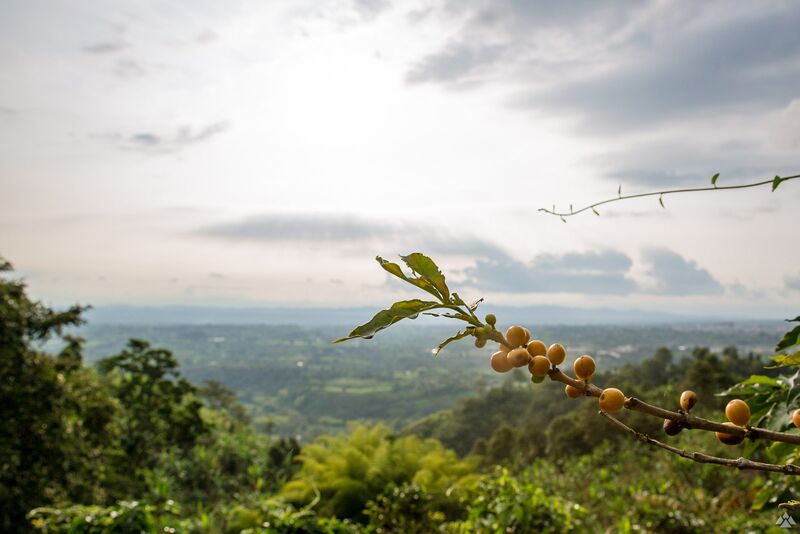In a week full of visits to gorgeous washing stations, the one at Kinunu, on the shores of Lake Kivu, is without a doubt the most dramatically beautiful. It sits on a sloping hillside that leads directly to the shores of Lake Kivu, an enormous inland lake that separates Rwanda from the Democratic Republic of the Congo. Jungle islands dot the landscape, to the south we can make out the coastal town of Kibuye, and beyond that is an enormous looming volcano called Karonji.
You have to check this out:
Kinunu is one of 8 washing stations owned by KZ Noir, and managed by Gilbert Gatali, who we profiled in depth in the beginning of our trip. All of KZ Noir’s stations are privately owned, but they receive cherry and employ workers from local coopeartives; 6 coops in total contribute to the output at Kinunu. Mr. Gatali’s agronomist at Kinunu is a man named Pascal Mugiraneza, and the two of them work together alongside Technoserve to offer education in pruning, mulching, and other agronomic practices to the cooperatives that work in concert with Kinunu. This station produced 9 containers total in 2012, a huge jump from the 3 containers it produced in 2011, while transitioning from being fully owned by SOCOR to being primarily owned and overseen by Gilbert, Pascal, Laetitia, and the rest of the KZ Noir staff in Rwanda. Around 5000 farmers total contributed the cherry that created those 9 containers, and many of these farmers also work in various levels of production at the station.
Kinunu uses a fully washed process, in a manner considered “traditional” to those who know more about Rwandan washing stations than your humble Sprudge editors. Coffee is first “floated” in plastic tanks to sort, then dry fermented for around 18 hours, give or take. It’s then de-puplped, washed, and let out into water channels for further sorting by weight, then deposited into soak tanks for 20-24 hours. On those minor variations in duration of ferment and soak, Mr. Gatali gave us a great quote, one that applies to not just the coffees processed not just at Kinunu, but to the whole of specialty coffee throughout its global chain:
“We don’t control the coffee. The coffee controls us.” – Gilbert Gatali
After soaking, the coffee cherries are pushed down to the bottom of the hill in a giant shoot that sort of looks like a water park slide in miniature. Once there, the coffee (still wrapped in its parchment) is again hand sorted, before the drying process begins on the shores of the lake.
There’s a couple of unique things happening here at Kinunu that speak to Gilbert and Pascal’s quest for high quality. First, KZ Noir has installed a dry mill on the premises at Kinunu, a practice that is exceedingly rare in Rwanda. Owning your own dry mill generally extends an added degree of intentionality to the quality control process, and having the mill onsite at Kinunu means additional employment opportunities for the cooperative communities in this region of Gisenyi. The dry mill was put in place after Kinunu was acquired by KZ Noir in 2011, and along with an enormous Pinhalense milling system, they’ve installed a density table to add precision to cherry selection at the very, very end of the milling process. Counter Culture Coffee buyer Tim Hill is quick to look for these when visiting dry mills, and told us that density tables are often “what makes the difference between good and great coffee.”
Kinunu is also keenly focused on day lots, and carefully hand-sorts these lots for the highest of high quality export samples. We watched around 30 women hand-sort individual day lots, which will then be sent to Kigali for cupping by KZ Noir cupping expert Laetitia Mukandahiro (profiled in depth here), who will score and group these top quality lots for export. This final day-lot hand sort process happens for each of KZ Noir’s 8 mills, though not necessarily at each of their 8 mills, all of which points to Kinunu as being a particularly well integrated and controlled environment for processing coffee. The women we watch sort have their hair covered to comply with health regulations, and while watching them work is maybe a devil-in-the-details sort of thing, listening to them work is nothing short of a minor symphony: Waves crashing on the shores of Lake Kivu, wind whistling through the coffee trees, and the soft sounds of 40 female voices chatting and giggling amongst themselves in Kinyarwanda. [youtube]Nb4sZJ74EOc[/youtube]
Much of the coffee produced at Kinunu in 2011 was imported by Sustainable Harvest, then purchased, roasted, and distributed via Whole Foods by Allegro Coffee. We can’t wait to see where coffee from this beautiful place winds up in 2012. Coffees from two other nearby KZ Noir stations were purchased and roasted in 2011 by Wrecking Ball Coffee Roasters (“Kigali Karenge”) and Four Barrel Coffee Roasters (“Nyamasheke Shangi”). In our experience in Rwanda, both at their cupping facility in Kigali and at their Kinunu washing station on the shores of Lake Kivu, the people at KZ Noir have created a brand fast becoming a shorthand for high quality coffee from Rwanda’s eastern lake coast. The level of intentionality at work here is remarkable, and the staff, especially Pascal, Gilbert, and Laetitia, double their roles as open educators and advocates for their sector of the specialty coffee industry. The sky is the limit for quality at Kinunu, and elsewhere in the KZ Noir washing station portfolio on Lake Kivu.













